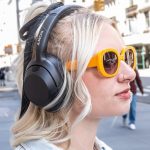Chris McGrath / Staff / Getty Images
- Martha Waslen launched staycation booking-app DayAway during the pandemic.
- Waslen says one of the reasons she managed to bring it to fruition in under a year is because she launched it in Singapore.
- “If I did this in New York, this would have been such a battle and I don’t know that I would have gotten to this point,” Waslen said.
- See more stories on Insider’s business page.
It’s happened to all of us: We think of a business idea, maybe tell a friend or two, then forget all about it.
Not Martha Waslen.
Fresh off Singapore’s “circuit breaker” last June, when borders were closed to foreign travelers, Waslen was strolling the grounds of one of her favorite hotels, Shangri-La Hotel Singapore, when she noticed something.
“They have these amazing facilities, like a beautiful gym, spa, and pool – and there was nobody there,” said Waslen, who observed the same scenario at several other luxury hotels in the island nation.
At the time, the hybrid hospitality trend, which blends hotel and coworking spaces, was starting to take off in Europe and the US. But when Waslen, and her husband inquired about possible work from hotel arrangements, many hotels in Singapore said they weren’t set up for it yet.
This persuaded her there really was an untapped market opportunity, and, as Waslen told Insider, “things just snowballed from there.”
Targeting Singaporeans and expats who enjoy the finer things in life
DayAway, which soft-launched in April, allows users to discover, browse, and book daytime experiences at Singapore’s finest luxury hotels. The platform works with selected hotel partners to curate exclusive packages.
According to Waslen, DayAway’s proposition is timely because hotels have been trying to increase revenue generated by ancillary (non-room) inventory such as pools, gyms, restaurants, spas, and meeting venues for nearly a decade, but “either lacked the technology to sell these spaces effectively or the marketing channels to engage with the local community.”
DayAway’s partners include some of Singapore’s most iconic hotels, including the Raffles Hotel Singapore, The Fullerton Hotel & The Fullerton Bay Hotel Singapore, and the Intercontinental Singapore and Fairmont Singapore. It currently partners with 10 hotels and aims to add 25 more by July. Right now, it’s free for all to use.
Among DayAway’s offerings is its Sling and Swim experience at Raffles Hotel Singapore. For $100, users get three hours of pool time, a $20 credit at the hotel’s Pool Bar, gym access, and a complimentary Singapore Sling. The experience, Waslen said, sold out within a day of launch.
The Afternoon Tea by the Bay package ($428) at the Fullerton Bay Hotel, meanwhile, offers a classic three-tier afternoon tea for two in the privacy of a Bay View room that overlooks the Singapore skyline. It also includes six-hour room access, a complimentary bottle of wine, and one hour access to the hotel’s infinity pool.
A one-stop shopping for curated experiences
One of the differentiators that sets DayAway apart from other platforms offering daytime experiences (such as Dayuse, Klook, or Daypass) is its branding, according to Waslen.
“We’re not a discount or voucher site. We built our platform to offer luxurious, elevated experiences so that our users can feel like they’re booking a really indulgent escape for themselves and their loved ones,” Waslen said.
DayAway operates on a B2B subscription model and can manage inventory and share analytics with its partner hotels, Waslen said.
Building a user-friendly inventory system was key because many hotels are saddled with rigid legacy systems that make incorporating new technology difficult. Often, the information about special experiences is buried deep within hotels’ websites.
“Whether they’re after a relaxing afternoon or a special event like a bridal shower or birthday celebration, DayAway helps our users do everything in one nicely packaged platform. They’re not going to want to go back to trawling through 50 websites for all that information,” said Waslen.
Currently, Waslen said, users only pay for what they buy. DayAway plans to draw revenue from corporate bookings as well as its hotel partners, although it is currently waiving fees for the latter as part of its pilot program.
Fashion and beauty marketing expert turned tech founder
Monetizing gaps in the market is nothing new for Waslen, an American who began her career at Ralph Lauren’s headquarters in New York as a sales and marketing rep.
“Branding was everything to Ralph,” she said. “Every single detail, when you walk into a store or showroom, is selling his dream, his vision. I learned that just one thing out of place can ruin the whole illusion.”
In 2011, Waslen made a jump for a job a continent away in Singapore at Luxola, a digital beauty platform that was eventually acquired by Sephora.
According to Waslen, the learning curve was steep: The team was lean, e-commerce hadn’t quite taken off in Singapore yet, and other platforms and blackmarket sites were selling similar products out of China for up to 70% less.
“But we developed such a beautiful brand experience, like in the images we used, our marketing campaigns, and social media. And we had an amazing customer experience: We picked up every phone call and hand-delivered every item in beautiful packaging,” she said.
Waslen says she brought the same customer-oriented approach to DayAway, which she bootstrapped until closing an initial round of $350,000 in seed funding in late March. Waslen declined to provide further details on the funding, saying only that it was from a small group of investors from Singapore, the United States, and Europe.
Her advisory panel includes Roger Egan III, cofounder and CEO of Redmart, and Daniel Pristavec, an early Airbnb employee.
Singapore was instrumental in DayAway’s success
Waslen says one of the main reasons she managed to bring DayAway to fruition in under a year is because she launched it in Singapore.
“If I did this in New York, this would have been such a battle and I don’t know that I would have gotten to this point,” she said. “But in Singapore, it’s phenomenal how people are so willing to network, be collaborative and be receptive to new ideas. One person would introduce me to five people, then those five people would introduce me to five more.”
The pandemic too has proven an unlikely catalyst, according to Waslen, who observed that amidst its devastation, COVID-19 has also created opportunity, such as by opening up conversations with hotels searching for new revenue streams.
Courtesy Raffles Hotel
Following a recent spike in COVID-19 cases, Singapore tightened restrictions on movements and activities through the middle of June. Waslen is planning to use this time to onboard more hotels and experiences. Beyond that are ambitious plans to expand into international markets and take the company public one day.
For now, though, she’s fully committed to what she’s building.
“I’m not at a point in my career where I can just think, ‘Lots of first-time CEOs fail on the first try,’ and move on to the next entrepreneurial project,” said Waslen. “DayAway is it for me, because I think it has unlimited potential across the globe.”
Powered by WPeMatico






